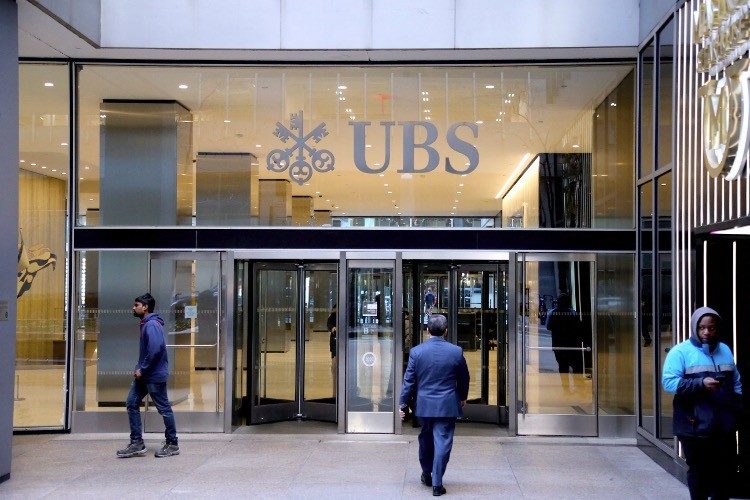
Swiss multinational bank UBS agreed on Sunday to purchase competitor Credit Suisse in a last-minute merger orchestrated by Swiss authorities, as some of the world’s top central banks tried to reassure investors about the health of the banking system.
According to the deal, UBS will pay three billion Swiss francs and bear up to US$5.4 billion in losses in a deal slated to conclude by the end of 2023. In an indication of a coordinated global response, the U.S. Federal Reserve said it had joined central banks in Canada, England, Japan, the EU, and Switzerland in an effort to boost market liquidity. The European Central Bank (ECB) pledged to back eurozone banks with loans if necessary, stating that the Swiss rescue of Credit Suisse was “instrumental” for assuaging fears and maintaining calm.
Octavio Marenzi, chief executive of Opimas in Vienna, said,
Switzerland’s standing as a financial center is shattered — the country will now be viewed as a financial banana republic. The Credit Suisse debacle will have serious ramifications for other Swiss financial institutions. A countrywide reputation for prudent financial management, sound regulatory oversight, and, frankly, for being somewhat dour and boring regarding investments, has been wiped away.
Following a dramatic week that witnessed the collapse of Silicon Valley Bank (SVB) and the closure of Signature Bank in the United States, the recent move by UBS to buy Credit Suisse could have significant waves across global financial markets.
“The euro area banking sector is resilient, with strong capital and liquidity positions,” the ECB said. “In any case, our policy toolkit is fully equipped to provide liquidity support to the euro area financial system if needed and to preserve the smooth transmission of monetary policy.”
Federal Reserve Chair Jerome Powell and Treasury Secretary Janet Yellen lauded the move by the Swiss authorities.
Moreover, the Bank of England also welcomed moves by Swiss authorities and stated that the British banking system was well-funded.
It was still uncertain if the Swiss deal was adequate to restore trust in lenders around the world.
The euro, the pound, and the Australian dollar all increased by around 0.4 percent against the U.S. dollar.
“It seems like a very large and decisive intervention,” said Brian Jacobsen, senior investment strategist at Allspring Global Investments. “Governments are intent on snuffing out the spark of contagion before the flames get out of control.”
UBS Chair Colm Kelleher revealed during a press conference that it will wind down Credit Suisse’s investment bank, which has thousands of employees globally. UBS said it expected yearly cost savings of some US$7 billion by 2027.
Credit Suisse shareholders will receive one UBS share for every 22.48 Credit Suisse shares held, equivalent to 0.76 Swiss francs per share for a total consideration of three billion francs, UBS said.
Also, Credit Suisse shares had lost a quarter of their value last week. The bankhead to rely on US$54 billion in central bank funding amid scandals that have undermined confidence.
However, some investors were optimistic about Sunday’s developments.
“The UBS-CS deal is the best solution the market could have hoped for,” said Michael Rosen, chief investment officer at Angeles Investments. “CS shareholders are essentially wiped out, and some bondholders will be wiped out, but the basic functioning of the banking system was protected.”
The two banks, both counted by the international Financial Stability Board as systemically relevant globally, are interlinked through frequent exchanges of executives. Both chairman Axel Lehmann and CEO Ulrich Koerner are former decision-makers at UBS.
Now with Credit Suisse’s short-term prospects addressed, attention would likely turn back to beleaguered mid-sized and smaller U.S. lenders.
Pressure from deposit outflows remained notwithstanding an attempt by various large banks to deposit US$30 billion into First Republic Bank, an institution rattled by the failures of SVB and Signature Bank.
S&P lowered First Republic Bank’s sovereign credit rating from BB+ to B+ on Sunday.
Four prominent U.S. lawmakers said Sunday they would contemplate whether a higher federal insurance limit on bank deposits was needed.
Additionally, Home Depot co-founder Bernie Marcus indicated that “woke” policies could have led to SVB’s dramatic failure. Previously, as the bank raced toward collapse, some top executives were championing “woke” LGBTQ+ programs, including a “safe space” for coming-out stories.
For instance, Jay Ersapah, the boss of financial risk management at SVB’s U.K. branch, introduced initiatives such as the company’s first month-long Pride campaign and a new blog highlighting mental-health awareness for LGBTQ+ youth.
“The phrase ‘You can’t be what you can’t see’ resonates with me,’” Ersapah was quoted as saying on the company website.
“As a queer person of color and a first-generation immigrant from a working-class background, there were not many role models for me to ‘see’ growing up.”
Ersapah’s efforts as the company’s European LGBTQIA+ Employee Resource Group co-chair propelled her to SVB’s “outstanding LGBT+ Role Model Lists 2022,” a list shared in a company post just four months before the bank was shut down by federal authorities over liquidity concerns.
“I feel privileged to co-chair the LGBTQ+ ERG and help spread awareness of lived queer experiences, partner with charitable organizations, and above all, create a sense of community for our LGBTQ+ employees and allies.”
SVB was shut down by the California Department of Financial Protection and Innovation shortly after the bank divulged it had taken a $1.8 billion hit from a $21 billion fire sale of its bond holdings.
SVB makes for the second-largest bank failure, making its collapse the biggest bank failure since the 2008 financial crisis. U.S. President Joe Biden has tried (albeit unconvincingly for conservatives) to assure the public that taxpayer dollars would not be used to deal with the collapse. Nonetheless, Nikki Haley still called Biden’s statements a “Biden bailout,” cautioning that taxpayers would suffer if banks cannot cover costs of the collapse. “Joe Biden is pretending this isn’t a bailout. It is,” she said.



